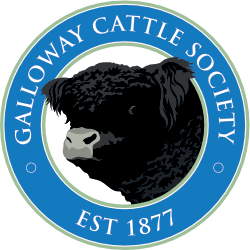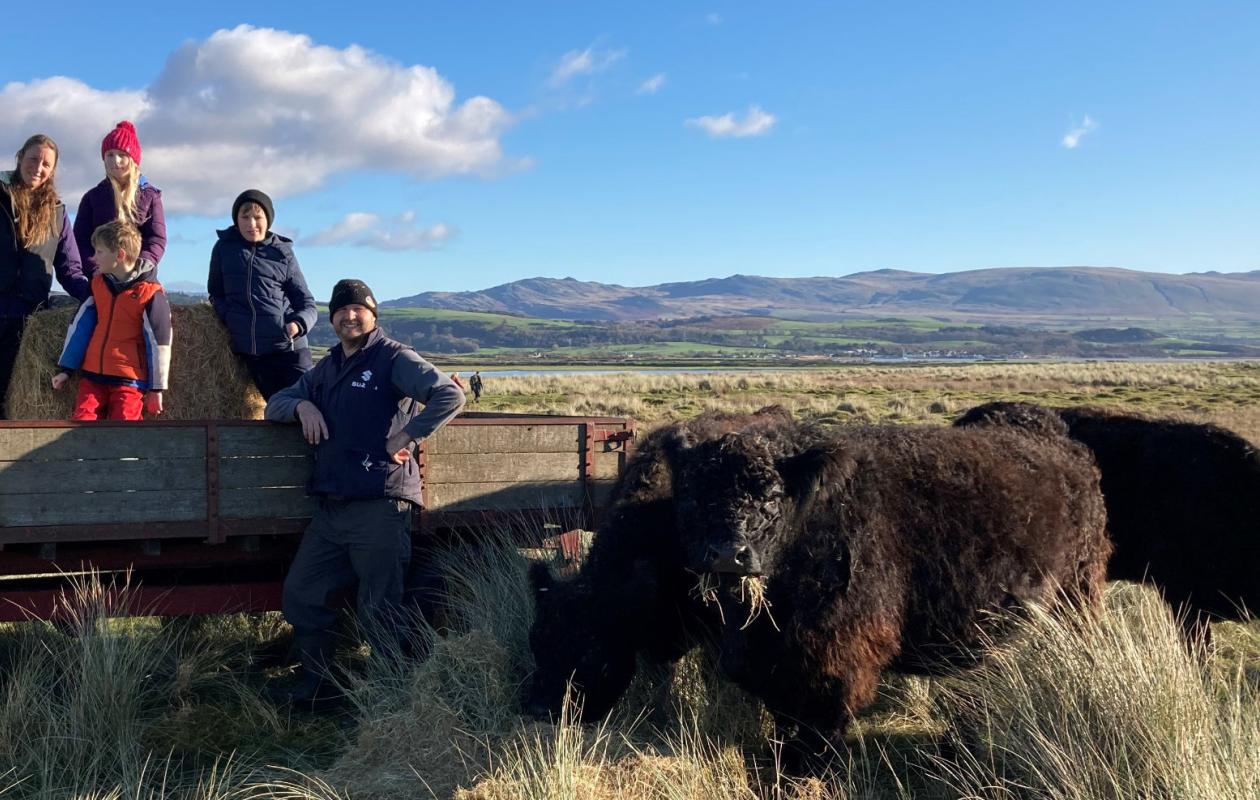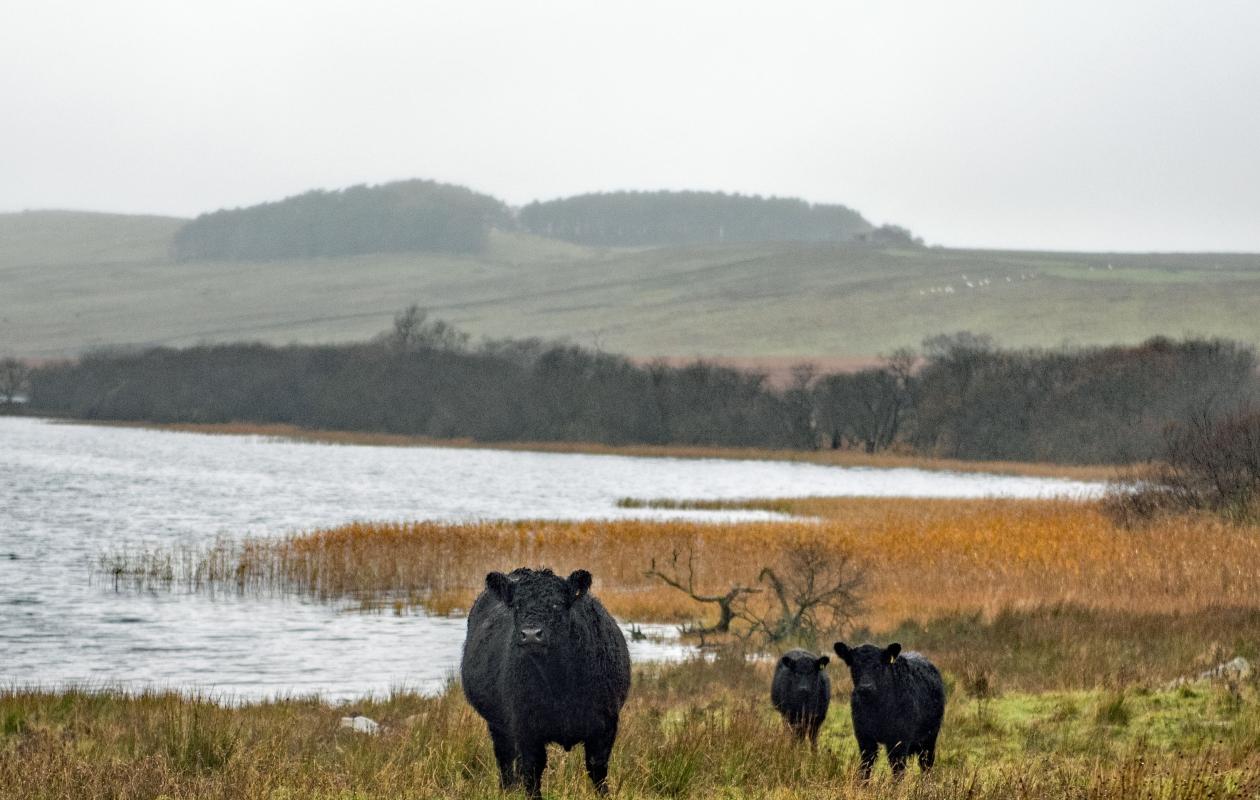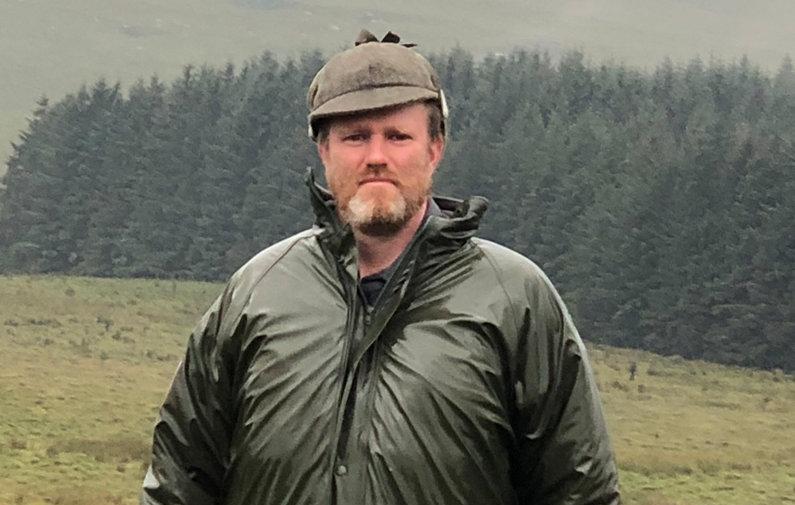Wigtownshire farmer David Ferguson is probably better known for his breeding of Blackface sheep, but in the background he also has a growing herd of hardy Galloway cows. Markdhu is situated in the bleak hills of North Wigtownshire right on the Ayrshire border and is where he spent his childhood. “Galloways are the only breed of cattle that could survive and thrive on this type of hostile terrain” says David.
David (43) his wife Ann (40), Phoebe (8) and Sophie (7) live at Drannandow Farm, Newton Stewart. David made the move to there as a young shepherd when he was 17 and for the last 12 years he has been a partner in the business with his Father Billy and James McEwen.
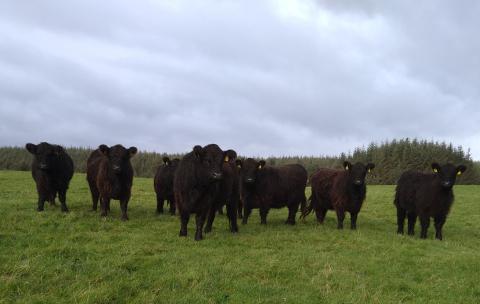
This hill farm expands to over 1700 hectare and has a flock of 1400 pure blackface ewes and 30 pure Luing Cattle. Drannandow is perhaps best known for the outstanding achievement of selling the top priced shearling at Newton Stewart market in 2018 for £42,000 named ‘The Belter’. This same year, David took on the lease of Barclye Farm from the RSPB, which is located next door to Drannandow giving another 225ha.
David has been farming Markdhu since his father Billy retired in 2011 assisted by shepherd Keith McWhirter. There are 730 pure Blackface ewes and 20 pure Galloway cows. The Fergusons have had the tenancy of Markdhu from Stair Estates since 1915.
Markdhu Farmhouse sits around 600ft and the hill rises to 885ft. The land is quite flat and wet compared to the steeper rockier terrain of Drannandow, consisting of peat moss with very little inbye and green ground. In 2001 the Family took on the tenancy of neighbouring farm Markclach giving a combined unit of 1000 hectare
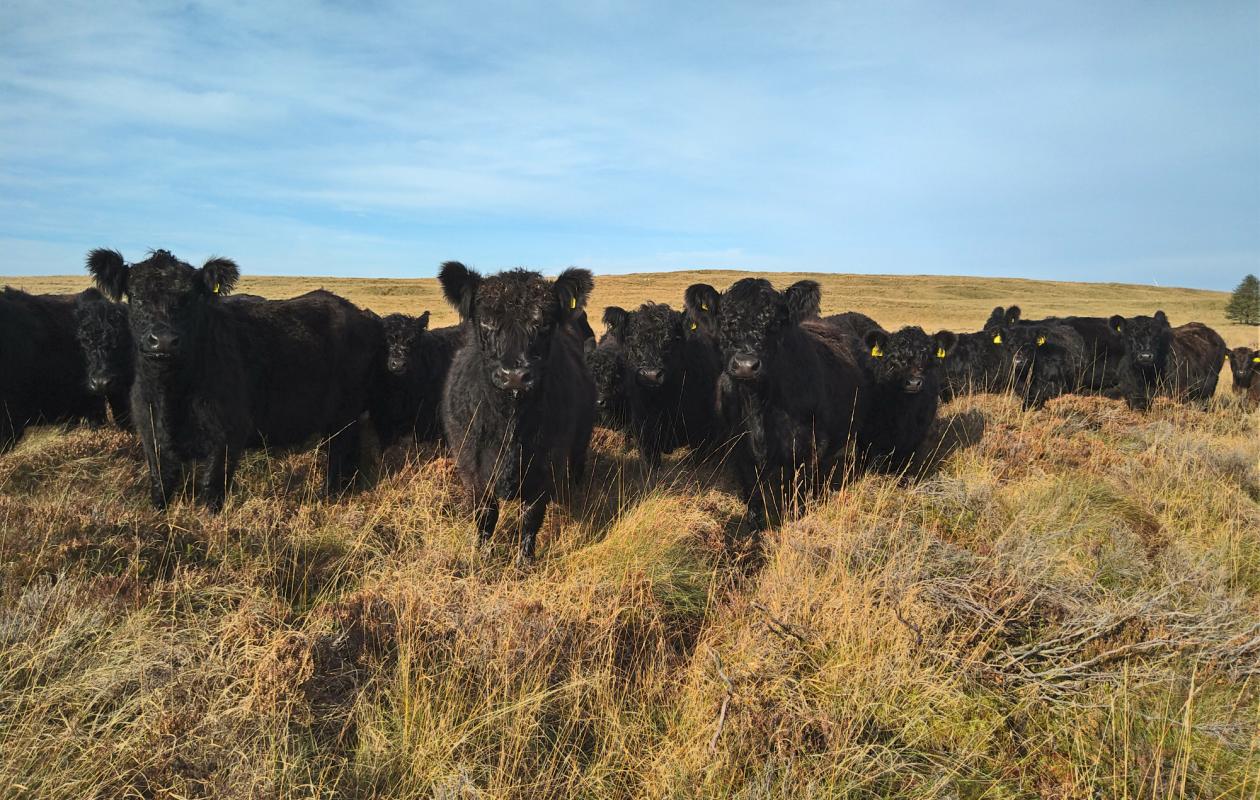
Galloway cattle have been at Markdhu for over 60 years. With David’s Father Billy being a great enthusiast. In 1957 Rhona of Chirmorrie was bought from Barrhill market closely followed by Nyph of Fintalloch and Barnsallie Myrtle both bought at Newton Stewart. From there the herd of 20 was built. Very traditional in type the only additions now are stock bulls. In more recent years a bull bought in company with neighbouring farm Miltonise for 2400gns from Barlaes has left some lovely females.
Markdhu and Markclach have no green fields suitable to grow silage, so for years hay has been bought in from further afield. There is no tractor either so it was always small bales and quite an expensive way to winter them.
When David took over the running of the business he wanted to try and run them as efficiently as possible with as little input as possible. A heft on Markclach hill which is too wet and unsafe for ewes and lambs is kept clear of stock for the summer and is used as their wintering with the addition of cattle rolls from just before they start calving in mid-December and fed through until the ewes start lambing in mid-April.
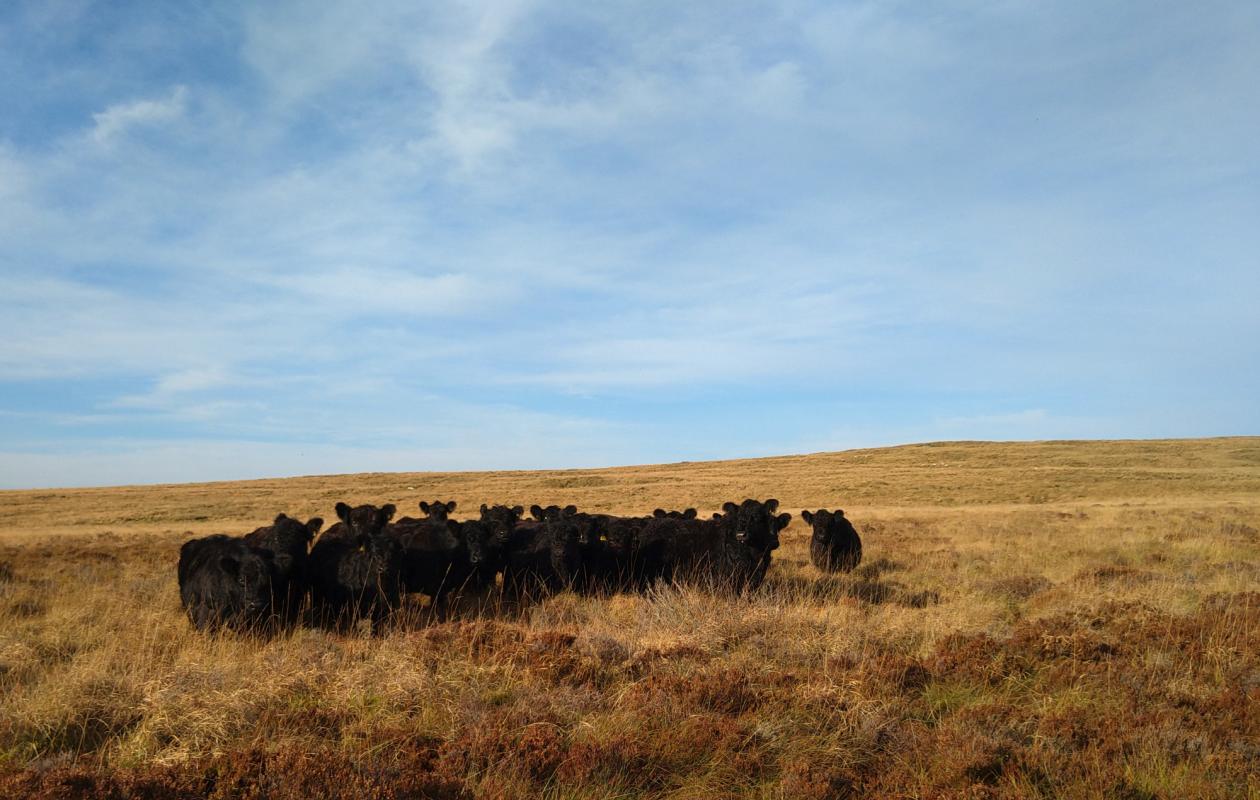
It works out they cost £110 to keep each cow for the year. Keith tags and castrates the calves the day they are born and the first time they are in pens is when they are weaned the end of November when the cows get their annual dose and trace element bolus. David admits “We don’t even own a calving jack. My aim is to keep the cows hardy, they never get to graze the field ground at Markdhu and since we started this system I think they respond better in the spring and summer when the new growth arrives and have adapted very well.”
The calves used to be sold store straight off their mothers but he felt he was just giving them away as they were just hill calves. Consequently, following weaning, for the last 4 years all the calves are moved to Drannandow for the winter where they are outwintered on silage and rolls. The bullocks are then sent to good summer grass at his Father in laws farm Drumtroddan near Port William. Here they are run along with the Blackie twins and help keep the sward right for them. They are then sold as forward stores in the back end to Sam Carlisle to go on and finish for his butcher’s shop. David pointed out “It is amazing how they grow and fill out into big solid animals just on grass. Very satisfying seeing them nearing their full potential.”
The heifer stirks are also wintered at Drannandow in a similar same way. They are then moved on to grass for the summer which is not quite as high quality as the bullocks grazing but enough to grow them on. When David was in talks about the lease at Barclye with the RSPB they were in an AECS scheme which involved summer cattle grazing. When he suggested starting a herd of Galloways for Barclye it was very appealing to them as David had explained they would poach less than other breeds and munch into the rougher ground to aid the habitat for birds and other wildlife. The same AECS scheme is in place at Markdhu and Dranandow so David maintains the diary for RSPB as he is familiar with the rules.
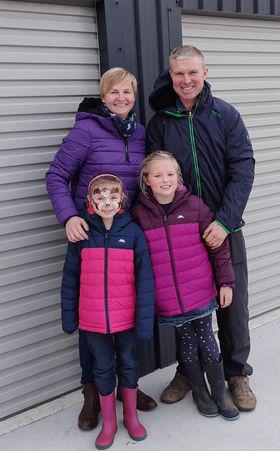
Initially there was nine heifers sent to Barclye alongside the young Over Barskeoch bull bought at Castle Douglas for 2000gns. This allowed Markdhu to continue to use the older bull bought from the same farm who had been junior champion the year of purchase. Half a dozen of the best heifers were then sent back to Markdhu in July with 7 month old calves at foot to allow the odd 18 year old cow to be cast.
In the second year the 9 bulling heifers were moved to a woodland block on Barclye after their summer on grass where they got rolls on the ground from Christmas time with no additional fodder. They joined with the bull and the remaining cows in February and then got tightened up in one field and given silage in order to clean and rest ground for sheep before lambing.
As an experiment they had two Drannandow Luing heifers run with them and the Galloway bull, allowing us an extra years use of their father (5200gns Nunnerie)..so watch this space for Luingaways! With another 10 bulling heifers ready to join the herd this winter and a further 10 behind those, the numbers will be built up to capacity and David is pleased he will then be in a position to sell breeding heifers “I’m sure there will be a market for these un-pampered hill cattle.”
David is the first to admit that he is not really a cow man but appreciates that they play a very important role in keeping the hill managed right for the sheep. “I have always been honest about not being a huge fan of cattle and for that reason was very amused when asked to do a feature for the journal. I think the main reason being that at away hogg wintering’s they are always poaching gate ways and eating all the grass! I like seeing them on the hill where they belong.”
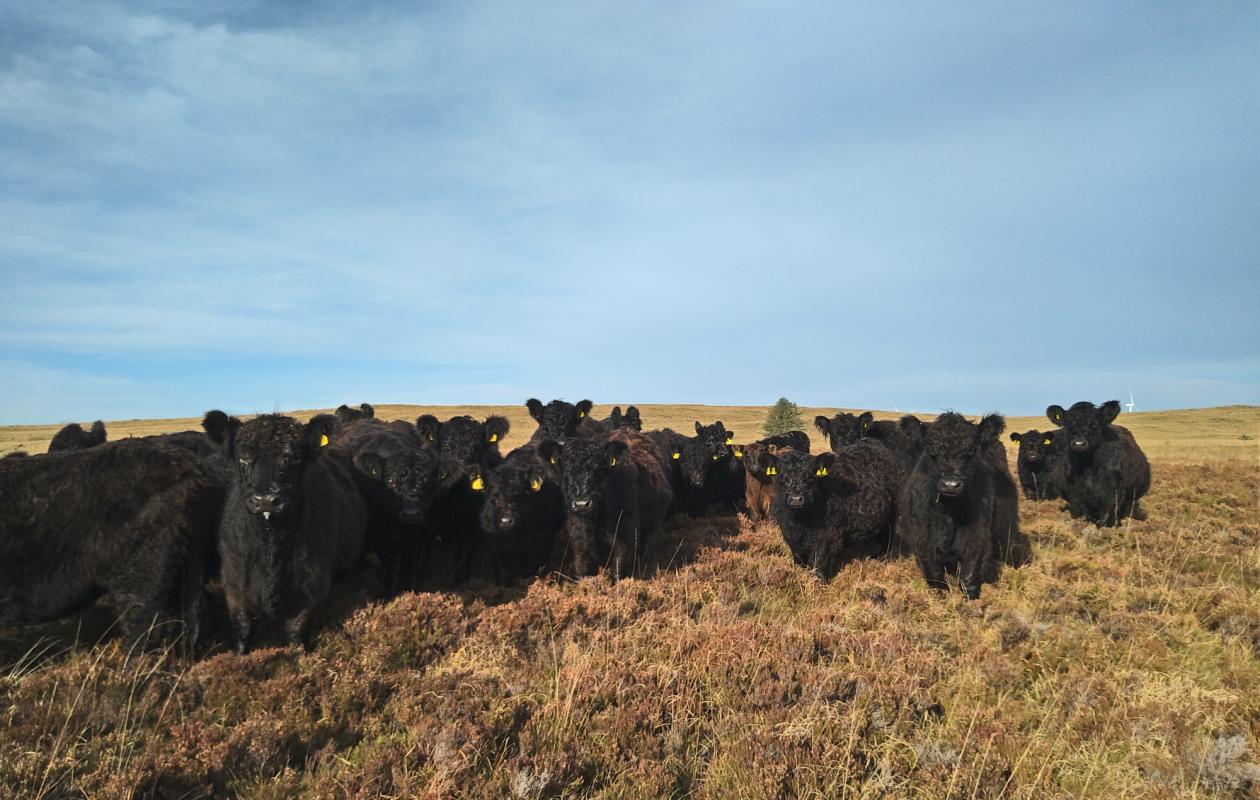
Since the ‘project’ of building up the new herd on Barclye started to gather momentum David now has a new-found enthusiasm for cattle. “When it comes to selecting a stock heifer or new bull I just judge them as I would a blackie tup. They must be good on their legs and have a thickness and depth throughout. I also like them to show breed character and really like good lugs. I feel if you are looking at stock everyday it makes the job more satisfying if they are easy on the eye.”
Looking forward when asked how his farming policy would change if subsidies were cut David quipped “although we rely on subsidies I can’t really see how we could adapt anything. We are very limited with the ground we have and the system in place is running as efficiently as possible. I think a combine harvester might struggle to get round Markdhu or the milk tanker would get scunnert opening and shutting the level crossing gates!”
Jokes aside he concluded “I do feel the future is bright for Galloways, with their ability to convert poor quality grazing into the tastiest beef out there with very little input and workload. I feel if subsidies are cut that other farmers may look towards them in order to adapt their system to cut costs and still produce a quality product. The new deal recently clinched by the Galloway Cattle Society with Aldi is fantastic and hopefully will see their popularity soar!”
